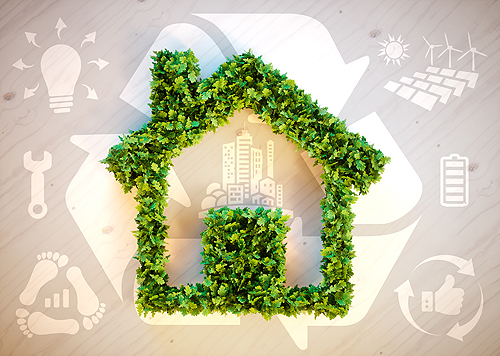How Recycling Can Boost Your Construction Business
Recycled construction materials provide an emerging business opportunity for today’s construction contractors. Here’s how you can make your company more environmentally friendly, while gaining an edge on the competition.
Why it Matters
When most people think about recycling, they focus on environmental benefits. In addition to limiting waste, construction material recycling leads to massive energy savings while reducing the growth of landfills. These days, more and more companies are recognizing that recycling can also boost their bottom lines by reducing overhead and enhancing the way contemporary consumers view their brands.
From a builder’s point of view, material recycling offers a number of benefits that enhance their ability to develop and sell more homes. In addition to reducing purchasing costs, recycling can lower disposal and transportation expenses. At the same time, recycling can help differentiate a construction company from local competitors. Many modern buyers care about the environment enough to purchase from builders who feel the same way. By leveraging your commitment to recycling during the sales process, you can set yourself apart from builders who have yet to recognize recycling as a business opportunity. Recycling can also put your company on a path towards Leadership in Energy and Environmental Design (LEED) green building certification.
Ways You Can Recycle Your Building Materials
How environmentally friendly is your residential construction business? Even if you’re already using green building materials and adding eco-friendly features to homes, there’s still more that can be done. By recycling the following construction materials, you can cut down on costs and add distinctive selling points to your builds.
- Metals: Send your copper, aluminum and steel to local metal scrap yards, so you can reuse them for current or future projects.
- Wood: As long as it’s clean and untreated, wood can be ground, chipped or re-milled to make mulch, engineered board, boiler fuel or lumber.
- Glass: In certain instances, glass from tile and windows can be recycled depending on the location of the project.
- Cardboard/Paper: This is one of the easiest materials to reuse, recycle or repurpose.
- Gypsum: Drywall can be recycled for use in a variety of markets, including cement manufacture, new drywall manufacture and even agriculture.
- Asphalt: When leftover asphalt is recycled back into useable asphalt, it results in substantial energy savings.
- Concrete: One of the most recycled construction materials, concrete can be used by all sorts of different markets.
Where to Start?
If you haven’t begun a recycling program for your construction company, start by identifying your local recyclers and then set up a meeting. You can invite a representative out to a job site or visit the recycler’s office. You will need to find out what you are allowed to recycle and learn the preferred procedures for delivering materials. It may sound like a lot of work, but there are big benefits to integrating recycling into your construction business. If nothing else, it can give you peace of mind, while offering a valuable selling point to your business and homes.
Learn how you can protect your business and add valuable selling points to your new builds with 2-10 Structural Warranties.








